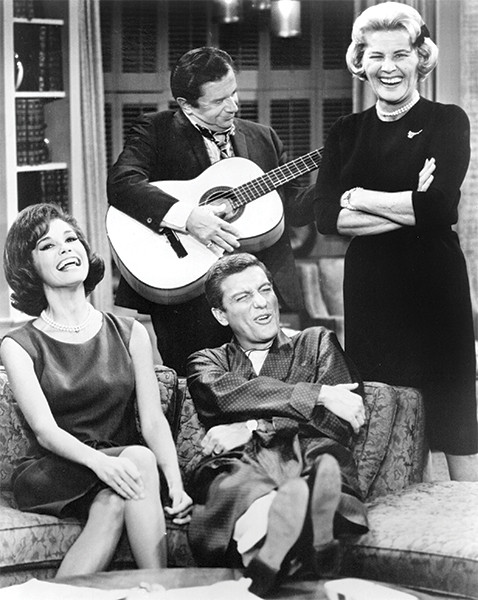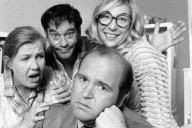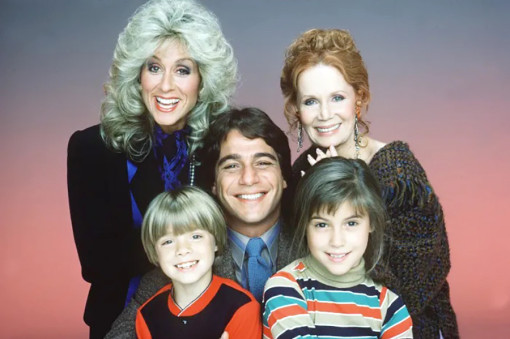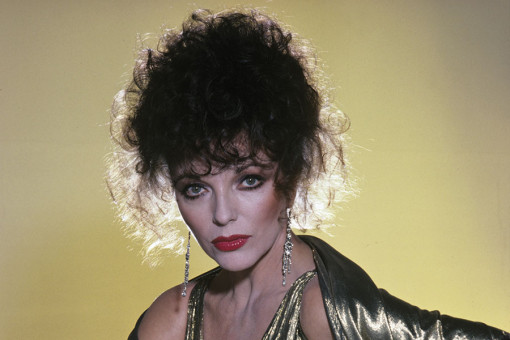To consider the storied television career of Carl Reiner, let’s turn the studio cameras on the medium’s first Golden Age, when the live Saturday-night revue Your Show of Shows and its successor, Caesar’s Hour, were NBC’s must-see TV.
From 1950 through ’57, Reiner spoofed on stage with stars Sid Caesar and Imogene Coca, while cracking wise in the writers’ room with the likes of Mel Brooks, Neil Simon and Larry Gelbart.
In 1961 he went on to create, write, produce and perform in The Dick Van Dyke Show, one of TV’s most honored comedies.
The program, which ran until 1966, loosely mirrored Reiner’s life, and he appeared as the star of the show-within-a-show, the tyrannical Alan Brady. By 1967 he already had 11 Emmy nominations and nine Emmy Awards, including best supporting performance by an actor for Caesar’s Hour, three for outstanding writing and one for outstanding comedy series for Dick Van Dyke.
In the ‘60s Reiner also began one of his most celebrated turns, as the Interviewer in The 2000 Year Old Man, the series of comedy routines that he created and performed with Brooks, largely ad-lib, on records and TV. That would have been enough to secure his reputation, but Reiner hardly stopped there.
He wrote and directed features, many in partnership with Steve Martin. And he never left TV: in 1995 he won an Emmy as guest actor for NBC’s Mad About You.
Reiner turned 95 in March, but he’s still working. He stars in the HBO documentary If You’re Not in the Obit, Eat Breakfast, holding insightful conversations with other famed nonagenarians (following its June debut, it remains available on demand and on HBO Go). And on TV Land’s Hot in Cleveland, he had a recurring role opposite Betty White as her on-again, off-again boyfriend.
Reiner has written more than 20 books, the latest of which is Carl Reiner, Now You’re Ninety-Four (Random Content 2016). He’s currently at work on yet another, Too Busy to Die.
He and a number of his colleagues recently discussed his remarkable career with emmy contributor Jane Wollman Rusoff. First, let’s hear from the man himself.…
CARL REINER:
On the Your Show of Shows writers’ room: “Mel Brooks would always come in after noon because he couldn’t sleep at night. We knew he was on the way because his coffee would come up from the Stage Delicatessen.
“Sid and Mel Tolkin were big cigar smokers. When they finished their cigars, they’d throw them out the window and they’d land on the roof next door.
“In those days, you couldn’t use any expletives on television. In one sketch, Sid and I were being bombed by the Germans during World War I. Sid was flailing around, shaking his fist at the sky and supposed to be yelling, ‘Damn you, Germans!’ But the censors said, ‘You can’t say damn .’ So there was Sid shouting, ‘Darn you, Germans! Darn you!’”
On Sid Caesar: “Sid was the easiest guy ever to work with. He was a pussycat. He never screamed. The writers were his friends. [But] he was an angry man. One day when he was riding in Central Park, his wife’s horse shied and threw her. He got off his horse, grabbed the other horse by the bit and punched him.
“Another time, when he saw a guy trying to get into a small parking space between his brand-new car and another one, he knocked on the small vent window. When the guy didn’t open it, he pushed it in and grabbed him by the throat: ‘Would you like to relive your birth?’ he said. That was Sid. A funny man.”
On Imogene Coca: “[She] melted an audience. On stage, she was mesmerizing, but she was the shyest person in the world. She and Sid had a great rapport on stage, but off stage they just couldn’t talk to each other because they were very shy people.”
On The Dick Van Dyke Show (1961-66): “I created a sitcom that I would write and star in, called Head of the Family; I wrote 13 episodes, but it didn’t go.
“[Executive producer] Sheldon Leonard still wanted to do the show. I said, ‘I don’t want to fail with the same material twice.’ He said, ‘You won’t fail. We’ll get a better actor to play you!’ He suggested Dick Van Dyke, who was starring on Broadway in Bye Bye Birdie. I went to New York to have a look and saw maybe the most talented person I’ve ever seen.”
On Mary Tyler Moore: “We auditioned at least 20 actresses to play Dick’s wife, Laura. Sheldon told me, ‘You’ll know her when you see her.’ When Mary Tyler Moore came in, I gave her a page to read. After she read the first line, I took the page away from her and walked her down the hall to Sheldon’s office. ‘I found her!’ I said.
“Mary took to comedy like a duck to water. There was a line in one script where she had to cry funny. She asked me, ‘How do you cry funny? Show me.’ So I cried funny for her. That’s the only direction I ever gave her.”
On Rob Petrie’s sidekicks: “Rose Marie was our first choice to play one of the other two writers. It was Rose Marie’s idea to get Morey Amsterdam as the other writer. He was a human joke machine. Every time we needed a quip, he was there.”
On Rob and Laura Petrie’s neighbors: “Ann Morgan Guilbert was [neighbor] Millie Helper. The depth of her talent will never be known unless you saw her doing a Jewish immigrant coming to America.
“Jerry Paris [Millie’s husband, Jerry Helper] was a bright light and a very funny actor. He kept saying he wanted to direct and would come and watch John Rich direct the show. One day I told the cast that I was going to let Jerry direct. They all said, ‘Are you crazy? What does he know about directing?’ But he became the director and directed more episodes than anyone else. He was extraordinarily good.”
On the ratings race: “The first year, we were on opposite Perry Como and ratings were low. But CBS was going to give us $6,000 to do summer repeats. Sheldon and Dick were against that — they thought we’d lose money. I said, ‘Perry won’t be on. The people who didn’t see us will see us, and I have a feeling they’ll come back to us in the fall.’ That’s exactly what happened. [We became a hit] and stayed that way for the rest of the five years.”
On writing the show: “I think I wrote 30 of the first 60 episodes myself. It was very lonely. Each one was 28 minutes and 45 seconds long. [Writers] Bill Persky, Sam Denoff, Jerry Belson and Garry Marshall saved my life.”
On ending the show: “We ended it because we’d done about 175 episodes. We all felt we had other fields to plow and that we were repeating ourselves.”
The New Dick Van Dyke Show (1971–74): “Dick was living in the Arizona desert and said he’d like to do a show from there. I wrote the pilot. I became executive producer, and Saul Turteltaub and Bernie Orenstein came out [to Arizona] to write it.
“When the CBS censors wanted to [kill] a scene in which a child opens his parents’ bedroom door while they were [making love], I resigned. If this [censorship] had happened early on, I probably wouldn’t have done that, but at that point I had ‘ f -you’ money.
“I spoke with psychologists who thought the episode was funny. The kid didn’t see anything, because the parents were under the covers. CBS didn’t put it on in the U.S., but it played in Canada, and Canada did not secede from the hemisphere. I was ready to leave anyway. I had started a career that was going toward directing.”
On Lotsa Luck (1973–74): “The show starred Dom DeLuise, who was one of the dearest and naturally funny men who could make you laugh — and he was a good cook, too.”
REINER’S SUPPORTING CAST
Peter Bonerz (episode director, Good Heavens): “It was a big credit to be approved by Carl. He left me alone, which is what a good producer does. Carl got the optimum work from everyone. That was one of the great lessons that I learned and relearned from him: it’s a totally collaborative effort, and the director or the executive producer sets the tone minute by minute.”
Marty Brill (actor, The New Dick Van Dyke Show): “About a week before we were supposed to start, I was in a car crash and lost the middle finger of my right hand. The network and sponsors wanted me fired because of it. Carl was riled up and he took a stand.
We compromised: a prosthetic finger was made that I wore in certain scenes. But when anybody shook my hand, the finger would come off in their palm. That happened to one of the directors and he fainted!”
Mel Brooks (writer, Your Show of Shows, Caesar’s Hour; co-creator and costar, The 2000 Year Old Man): “Carl would wander into the [Your Show of Shows] writers’ room quite often, and we’d welcome him because he always had wonderful ideas — always bright, always with it. Not only ideas for sketches — ideas for characters.
He was the genius behind doing double-talk foreign movies. That was his idea. Carl could keep up with Sid doing double-talk in French, Italian and somewhat in German and Russian. But no one could keep up with Sid in Japanese. So we wrote out phrases in Japanese for Carl.
“When we did The 2000 Year Old Man, we knew we could go anywhere and that the other guy would pick up the ball and field it. The records were all ad-lib: I never knew what Carl was going to ask me, and he never knew what my answer would be. Carl is so special and talented and has given us so much for so many years.”
Nancy Dussault (actress, The New Dick Van Dyke Show): “At the beginning of production, Carl was there all the time. He was very playful. In one episode with a dinner party, we could be anyone we wanted to be. Carl really took off on that, jumping in with all kinds of ideas. I became Barbra Streisand. Hope [Lange] was Lena Horne, and Dick was a combination of Mark Twain and Fred Astaire.”
Jamie Farr (actor, The Dick Van Dyke Show): “I got drafted into the army in 1957, and when I came back to Hollywood to resurrect my acting career, no one would take a chance and hire me. Carl was the first. He cast me as the coffee-and-danish delivery boy from Snappy Service. It helped me get my name back into the business.
“I remember when his son Rob would visit the set. He and Rose Marie’s young daughter would follow me around. When we weren’t shooting, we’d all sit around and play Crazy Eights.”
Jackie Joseph (actress, The Dick Van Dyke Show): “The biggest thrill of working with Carl came after the first rehearsal when we’d perform the show for him and Sheldon Leonard. To make Carl laugh — nothing was as satisfying.”
Lainie Kazan (actress, Shelley Duvall’s Faerie Tale Theatre, 1984): “In the ‘Pinocchio’ episode, Carl played Geppetto. Paul Reubens was Pinocchio and I was the fairy godmother. That show was one of the best experiences I ever had. Carl was hysterical and warm and funny — so easy-going and accessible.”
Carol Leifer (voice actress, the animated series The Alan Brady Show, 2003): “My parents played comedy albums when I was growing up. They played The 2000 Year Old Man over and over, almost to the point where we could lip-sync it. That informed so much of my comedy. I grew up idolizing Carl and Mel.”
Barry Livingston (actor, The Dick Van Dyke Show): “In the episode I was on — at about seven years old — Ritchie [Larry Mathews] and I and some other boys pulled the covers off Dick’s [character] and revealed that he was sleeping in tiger pajamas. We were supposed to look amazed. But every time we tried it, we started to get the giggles.
“In the middle of taping in front of an audience, Carl emerged from the shadows and gave us a quiet speech about being professionals. But we still couldn’t get it together. Finally, he said, ‘Remember something serious from your past that stunned you, like if your dog got hit by a car.’ It worked.”
Larry Mathews (played Ritchie Petrie, The Dick Van Dyke Show): “Carl was really cool; he was always there for whatever questions I might have. If the director wasn’t available, my mom would say, ‘Go ask Mr. Reiner.’ Carl made it a great atmosphere for everyone. We were like a family.”
Mary Tyler Moore (played Laura Petrie, The Dick Van Dyke Show): “I had a big comedic crush on Carl, so I was pretty nervous when I got the call to come in to read. When we [finished] one scene, he put his hand on my head and said, ‘Come with me.’ He literally steered me down the hall to Sheldon Leonard’s office. He and Danny Thomas were there. Carl was beaming. He had found his Laura, and I had found my future.
“Along with being a creative genius in a very special league, Carl was the sweetest, kindest, most generous, decent and supportive man I had ever worked with. I learned so much.
“What I think had the biggest impact was Carl’s recognition of the raw comedic talent I didn’t know I had. Carl even tolerated my pointing out when a line — that had just gotten a big laugh — was in conflict with a previously established character trait, making it a false laugh. Bless him for his tolerance, kindness and willingness to share his genius with me.”
Bill Persky (writer, story editor, producer on The Dick Van Dyke Show; cowriter, The Sid Caesar, Imogene Coca, Carl Reiner, Howard Morris Special in 1967; co-creator, executive producer, director, Lotsa Luck): “In the Sid Caesar sketches, Carl was the air traffic controller — he would bring everything back when something had run its course, before it got out of control.
“When a new CBS executive was appointed and laying down rules, he came into Carl’s office and put his feet up on the coffee table. He started pontificating: ‘I’m going to tell you what I think is funny’ and talking about his view of comedy. Carl got up, walked across the room, pulled off one of the man’s Gucci loafers and threw it out the window. ‘ That’s funny!’ he said.”
Don Rickles (guest actor, The Dick Van Dyke Show): “Carl was always in command in the sense that he knew what he wanted, and he proved to be right. He was fun to be with as a writer and as a star.”
Chita Rivera (singer-dancer-actress, Your Show of Shows and Caesar’s Hour; actress, The New Dick Van Dyke Show): “Your Show of Shows was live, so there was a lot of fear going on. You were scared to death because you couldn’t make a mistake. On The New Dick Van Dyke Show there was nothing but fun and trust and joy.”
Rose Marie (played Sally Rogers, The Dick Van Dyke Show): “Carl is a comedy genius in every sense of the word. He knows every trick there is to comedy. He knows how to write it, produce it, direct it — and he knows how to put a switch on it to give it a little more color. On the show, we were a happy group. It was heaven on earth for five years.”
Beverly Sanders (actress, Lotsa Luck): “My character, Dom DeLuise’s sister, was supposed to be extremely heavy, so when I went in to read, I wore three pairs of slacks and two sweaters. Carl looked at me and said, ‘She’s perfect.’ After a while, I started to gain weight like crazy. At one point Carl said, ‘Beverly, you can stop eating now!’”
Loretta Swit (actress, Good Heavens): “Carl gives you such freedom as an actor and laughs at things you do, so you know you’re cooking. One day, he cracked up watching a rehearsal. In a scene Clu Gulager thinks I’ve been bitten on the face by a black widow spider and slaps me. So I slap him back. Then he tries to suck the poison out of my cheek. Carl was killing himself laughing.”
Saul Turteltaub (writer, producer, The New Dick Van Dyke Show): “I learned so much from him. He used to tell [my writing partner Bernie Orenstein] and me that when we were writing situation comedies, we should write what he called ‘realies.’ You look for what’s real — it should always be a real situation, something that could happen to anybody.”
Dick Van Dyke (played Rob Petrie, The Dick Van Dyke Show; played Dick Preston in The New Dick Van Dyke Show; voice actor on The Alan Brady Show): “Carl was a real comedy writer because he wrote about life.
“When I was cast in The Dick Van Dyke Show, I said, ‘My God, I’m a twig on the Sid Caesar family tree!’ Just to be associated with Carl was exciting. “The first season was terrible because everybody said, ‘What’s a Dick Van Dyke?’ The second year, we hit the ground running.
It was like coming to a party every morning — loud, raucous and fun. It was the most creative time in my life. We laughed and laughed. I’d still be doing that show if they let me. But I can’t fall over the [ottoman] anymore!
“Once in a while we played pranks. One day at lunch, Mary [Tyler Moore] fell asleep in the bedroom set. So Carl went out and got everybody on the lot — about l50 people — to stand around staring at her when she woke up. Was she shocked! It was so funny.”
Betty White (played Elka in Hot in Cleveland): “Carl is a good and dear friend. It’s always fun to work with those. He’s something special.”
This article originally appeared in emmy magazine, Issue No. 7, 2017




















